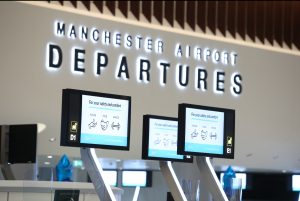Widnes to be at centre of multi-million hydrogen-fuel train project

Alstom today confirmed plans to bring its world-leading hydrogen technology to trains in the UK, with work centred on its multi-million pound Widnes facility.
This is the first substantive industry response to the Government’s challenge to remove diesel rolling stock by 2040.
The company is working with Eversholt Rail on plans to convert Class 321 electric trains to hydrogen operation, fitting hydrogen tanks and fuel cells to upcycle trains that are some of the best proven on the network into Britain’s most advanced rolling stock.
It will base its project at its Widnes train modernisation centre, which it opened in June last year.
With more than 13,000 sq m of space it is the largest rolling stock modernisation facility in the UK.
It was opened by Lord Prior of Brampton, Parliamentary Under Secretary of State at the Department for Business, Energy and Industrial Strategy.
Lord Prior said at the time: “This new centre for manufacturing will grow local skills, create hundreds of jobs both in Widnes and across the entire UK rail supply chain.
“This long-term investment marks Alstom’s commitment to the future of the sector in the UK.”
One of its first projects was a £24.7m contract to re-paint the 56-strong fleet of class 390 ’tilting’ Pendolino trains used by Virgin on the West Coast main line, involving an 80-strong painting team, including five apprentices, recruited mainly from the Liverpool and Warrington regions.
A spokeswoman for Alstom today said its plans for hydrogen-fuelled trains are currently only at the design stage, but further news about possible job implications for the area could follow later this summer.
Nick Crossfield, managing director, Alstom UK & Ireland, said: “The potential for hydrogen trains is enormous.
“The Government has set a clear objective of removing diesel rolling stock by 2040 and this requires a bold and innovative response from the industry.
“I am very proud that, working with Eversholt Rail, we are able to take the lead in that respect.
“Not only are hydrogen trains zero carbon, they are near-silent and emit no particulates, which means they offer substantial air quality and noise pollution benefits, too.”
He added: “On cost, hydrogen trains can help to avoid the necessity for line electrification, which represents a significant investment for customers.
“We think the potential long-term application of hydrogen in the UK is very significant. Less than 50% of the UK network is electrified, and much that isn’t electrified is unlikely ever to be so.”
He said: “Starting with this conversion, we think hydrogen could offer the right zero carbon solution for many parts of the network.”
Alstom is the first company to introduce a regional train based on hydrogen fuel cells. The Coradia iLint is the first Alstom hydrogen train, already on test in Germany.
Nearly a third of all the UK’s trains are diesel trains, which will need to be replaced or refurbished to hit the Government’s target of no diesel rail vehicles by 2040.
Hydrogen can be produced using sustainable electricity and electrolysis, or through industrial processes.
The fuel cell on the train produces electricity through a combination of hydrogen and oxygen to create water. The electrical energy is intermediately stored in batteries and the train is powered by an electrical traction drive.
The only exhaust is steam and condensed water.
Alstom also operates significant traincare centres in Chester, Crewe, Liverpool, Manchester and Preston.








